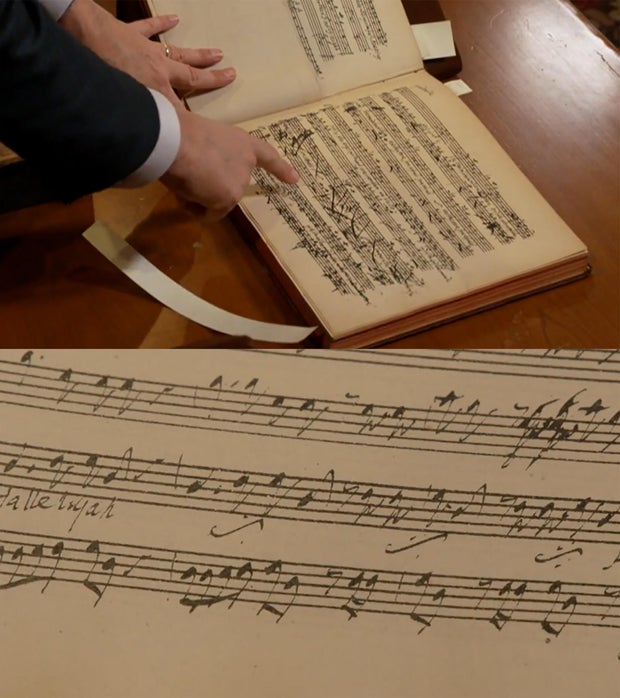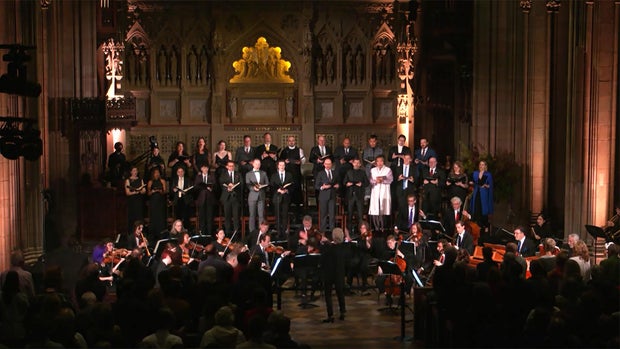CBS News
Book called “Ban This Book” is now banned in Florida. Its author has this to say about the irony.

Alan Gratz’s children’s book “Ban This Book” was published in 2017. Seven years later, his novel for kids ages 8 and older is at the center of a debate over book banning after a Florida school district last month took took the title literally and banned the book.
The Florida school district of Indian River County, home to the city of Vero Beach, last month voted to remove “Ban This Book” from its shelves. In removing the book, the school board overruled its own review committee, which had recommended that the school district retain the novel.
“Ban This Book” is about a schoolgirl who tries to check out her favorite book from her school library, E.L. Konigsburg’s “From the Mixed-Up Files of Mrs. Basil E. Frankweiler,” only to find it’s been removed due to a ban. She rebels by starting a secret banned book library — an aspect of the novel that the Florida school board objected to, with one member saying he believed the book’s message was about how to “overtly subvert school boards.”
“The thing they took objection to was calling out [school officials] in banning books. Now irony is dead.” Gratz told CBS MoneyWatch in a phone call. He added wryly, “I guess if you call a book ‘Ban This Book,’ you are kind of asking for it.”
Indian River County School District didn’t immediately respond to a request for comment.
Impact of book bans
Despite the ban, the incident is sparking renewed interest in his novel, Gratz said, although he won’t know the ban’s impact on sales until he receives a royalty statement later this year. Book bans typically harm sales, he added, and deters some schools from inviting authors to discuss their work with students.
“In a select few cases, it’s true that a banned book equals more sales,” Gratz said. “But for most authors that have books banned or challenged, their books disappear.”
It’s an issue that’s impacting more books and authors, with the American Library Association (ALA) finding that the number of books targeted for censorship surged 65% in 2023 compared with a year earlier, reaching the highest number of titles ever documented by the group.
In all, about 4,240 books were targets of censorship efforts last year, with about half of those books written by or including people of color and those from LGBTQ+ communities, the ALA found.
Gratz said that when “Ban This Book” was published, the most frequently banned books were works from series such as “Harry Potter” or “Captain Underpants,” with some critics objecting to the descriptions of witchcraft or attitudes toward authority.
Children’s book authors often support themselves by visiting schools, which pay for travel and provide an honorarium to speak with students, Gratz said. But a ban can cause school officials to shy away from inviting authors onto school grounds for fear that they’ll get into hot water or even lose their jobs.
“If their book isn’t on the shelf at all, they aren’t getting invited,” Gratz said. “When authors of color and those who identify as LGBTQ+ aren’t making money off their books, they have to stop writing and make money from other jobs, so we lose those voices.”
Gratz noted that some of his other books — he’s written 20 in all — have faced bans, but none have gotten the same amount of attention as “Ban This Book.”
“The big theme of ‘Ban This Book’ is that nobody has a right to tell you what book you can or cannot read, except your parents,” he said. “If the book is removed, then I can’t let my daughter read that book — you’ve already chosen for me that my kid can’t read it.”
CBS News
In Asheville, N.C., gingerbread houses reflect community spirit

Watch CBS News
Be the first to know
Get browser notifications for breaking news, live events, and exclusive reporting.
CBS News
The story of Handel’s “Messiah”

It’s probably the most-heard piece of classical music on Earth, the most sung, and the most recorded. It’s “Messiah,” by German-British opera composer George Frideric Handel.
“It has been in near continuous performance from 1742, when it premiered, all the way up to the present,” said author Charles King. “It’s absolutely everywhere. And you can’t say that about really any other piece of serious music.”
CBS News
King’s new book, “Every Valley” (Doubleday), gives us the backstory of “Messiah” and its “Hallelujah Chorus,” which comes about two-thirds of the way through Handel’s oratorio. “It’s not the finale!” King said. “People start getting ready to leave, you know, grabbing their keys and their parking validation, and then it’s like, ‘Nope, sit down. There’s a third more of this thing left to go!'”
“Messiah” wasn’t actually Handel’s idea. The words came from a friend named Charles Jennens. King suggests it should really be called Handel’s and Jennens’ “Messiah.”
“Charles Jennens was a wealthy landowner, but he also suffered from this kind of encasing sense of doom and despair – we might now call it chronic depression or even bipolar disorder,” King said. “He starts to pull down books from the shelves, and he starts to copy down bits of scripture. He was also working out, I think, a kind of philosophy of living.”
Conductor and writer Jane Glover has conducted “Messiah” more than 100 times (most recently, this month at Trinity Church in New York City). “I never fail to doff my hat, actually, at Charles Jennens for putting that together,” she said. “‘Messiah'” is in three parts. The first part is the Christmas story, which is why everybody does it at Christmas. The second part is the crucifixion, but then also the resurrection; and then Part III is about redemption. So, there’s a tremendous shape to this three-part oratorio.”
In the 1720s and ’30s, Handel’s popular Italian-style operas had made him a musical megastar. But in his 50s, his popularity was waning. So, when he was invited to stage a series of concerts in Dublin, King said, Handel thought he could restart his career: “And so, he sits down with this text that he’s received from Charles Jennens and decides to try to make something of it. You can imagine him thinking, ‘Hmpf, what am I gonna do with these? I got a bunch of Bible verses in the wrong order that I’m supposed to set to Italian opera music?’ But he does it.”
In his book, King describes the final product as “weird.” “It is weird,” he laughed. “It’s the strangest thing that Handel ever composed.”
Handel wrote the three-hour piece (for chorus, soloists, and nine-piece orchestra) in 24 days … 260 pages of music!
At the Morgan Library & Museum in New York, music curator Robin McClellan showed me a replica of Handel’s original score. “It shows the speed that he wrote. It’s so messy!” McClellan laughed. “He really was concerned with getting his ideas onto paper as fast as possible.”
For the “Hallelujah Chorus,” Handel wrote the word “Hallelujah” once … and then used the standard jazz repeat sign that we still use today! “He’s writing down the musical equivalent of ‘et cetera, et cetera, et cetera,'” said King. “In that era, there was really no assumption that anything would ever be performed again.”
CBS News
“Messiah” was a huge hit in Dublin, and, eventually, in London. It seems to offer a sense of hope and light at a time when they were in short supply.
King said, “‘Messiah’ was born in the kind of dark shadows of the Enlightenment. Britain was at war. The infant mortality rate in London at the time was 75%. And so, ‘Messiah’ is a kind of piece of art that is grappling with what basis, what possible basis for hope could there be when you have all of this evidence around you to suggest otherwise?”
Just about everyone loved it – except Charles Jennens! “He was worried that Handel had done a kind of cheap job,” said King. “He says, ‘I am never going to offer my words to Handel again to be so abused!'”
Handel agreed to make some changes, and Jennens softened. “In the end, he wrote to a friend of his that he thought it was ‘in the main, a fine composition,'” King said.
“Messiah” came to the American colonies in 1770, six years before this was even a country. It was performed in Trinity Church in New York City, sounding much as it did this month in exactly the same hall.
Trinity Church
Over time, “Messiah” has changed in all kinds of different ways. Handel’s nine-piece orchestra gave way to thunderous musical forces; various trims were implemented. Glover said, “People sitting in a church on hard pews don’t want to sit here for three-and-a-half hours.”
And whole sections were dropped. “Some people just do Part I at Christmas; that’s a very good way of doing it,” Glover said.
Still, in all its versions, Handel and Jennens’s masterpiece has offered the same message for nearly 300 years: That there is always hope.
“Every single generation that has heard this thing, has felt that this music is kind of a message in a bottle for them,” said King. “It’s a piece of music that does stuff to us.”
Its message? “Have the possibility of hope; problems are solvable; the world is gonna be okay. And then, take that and put it into action.”
For more info:
Story produced by Sara Kugel. Editor: Carol Ross.
CBS News
Almanac: December 22 – CBS News

Watch CBS News
Be the first to know
Get browser notifications for breaking news, live events, and exclusive reporting.












